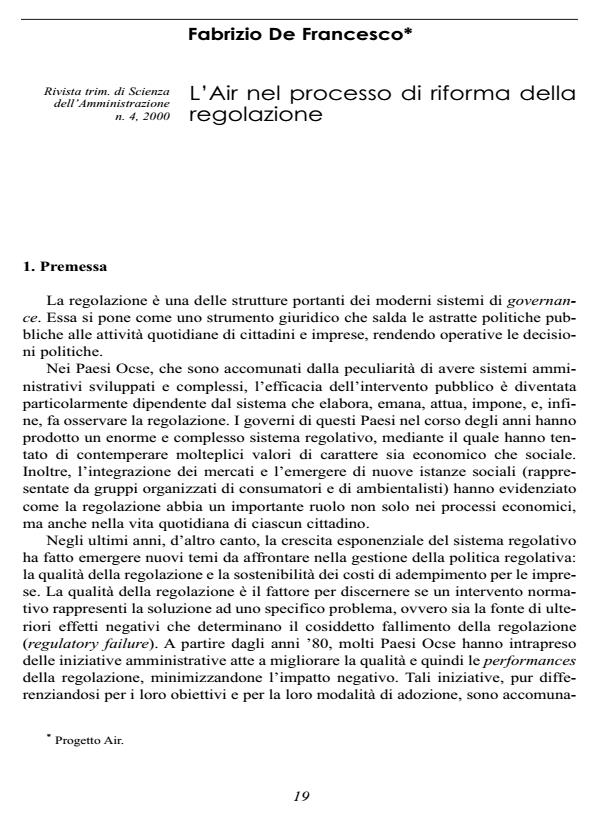L'Air nel processo di riforma della regolazione
Journal title RIVISTA TRIMESTRALE DI SCIENZA DELL’AMMINISTRAZIONE
Author/s Fabrizio De Francesco
Publishing Year 1 Issue 2000/4
Language Italian Pages 28 P. File size 124 KB
DOI
DOI is like a bar code for intellectual property: to have more infomation
click here
Below, you can see the article first page
If you want to buy this article in PDF format, you can do it, following the instructions to buy download credits

FrancoAngeli is member of Publishers International Linking Association, Inc (PILA), a not-for-profit association which run the CrossRef service enabling links to and from online scholarly content.
The rise of the regulatory state has constrained many European and OECD countries to set up policy tools aimed at governing regulation. Indeed, since the need of social regulation has never been under discussion as a way to protect public interest, governments have focused on improving the quality of regulation. Regulatory Impact Analysis (RIA) is a decision tool that systematically assesses the negative and positive impacts of proposed and existing regulation. It is a method that supports the decision-making process without aiming to substitute decisions with technocratic tools, enhancing the empirical basis of decisions. In order to communicate information to decision-makers, it takes the form of a short and structured document. This policy making tool has the high potential to cope with the issue of the lack of legitimacy and credibility of regulators, enhancing accountability and transparency of the regulatory process. However, it is only one element of regulatory reform; implementation of RIA needs specific preconditions, i.e. the public management reform, deregulation, and an efficient competition law. This article argues that implementation of RIA is not an easy task, since there are many bias that determine the effectiveness and evolution of this policy tool. Nevertheless, RIA is a dynamic tool, with regard to deregulation, avoidance of unnecessary rules, regulatory quality, and to some extent regulatory management.
Fabrizio De Francesco, L'Air nel processo di riforma della regolazione in "RIVISTA TRIMESTRALE DI SCIENZA DELL’AMMINISTRAZIONE" 4/2000, pp , DOI: